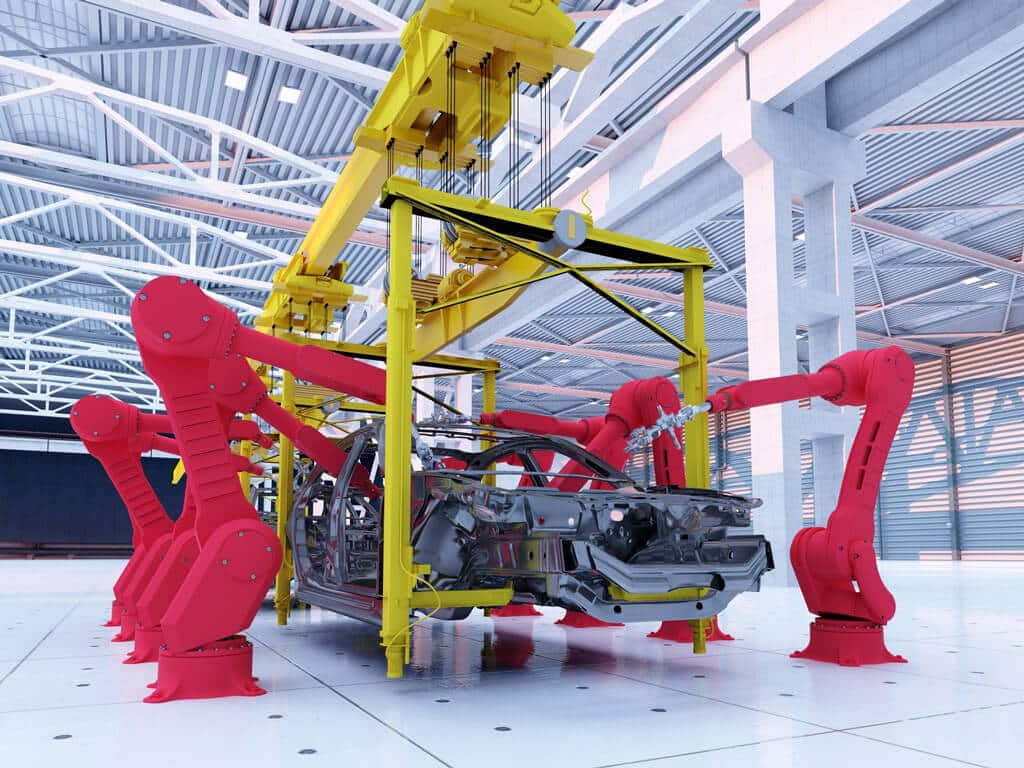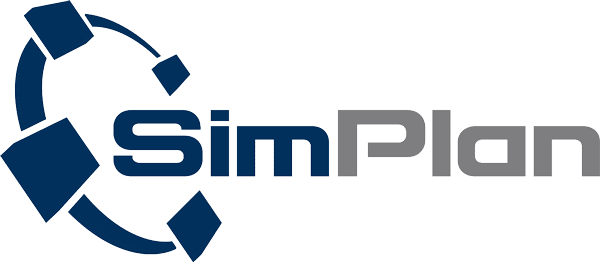
Process simulation in production and logistics
Logistics or manufacturing – a process simulation enables companies in all industries to plan individual plants or complete production systems efficiently and cost-effectively. If the initial planning simulation is expanded to include the components of modeling, optimization and validation, it can be used to derive serious predictions about the benefits and behavior of the entire system – and thus evaluate investment cost and make necessary adjustments in advance.
Course of a flow simulation: goals and phases
Process simulation pursue the overriding goal of significantly increasing the profitability of your company. The process can be roughly divided into six phases, namely
- the definition of goals and problems,
- the system analysis and data collection,
- the development of an abstracted simulation model oriented to the objectives,
- the validation and verification of the model,
- the evaluation of the gained knowledge as well as
- further experiments and tests.
Profitability as an overriding objective
Cost-effectiveness results from taking into account the complex interaction of all agents and components of the planned plant. In concrete terms, the following goals can be achieved by simulating processes:
- Maximize utilization of machines, vehicles and equipment and increase throughput;
- Minimizing the need for personnel, materials, storage space, and shortening lead times;
- Optimization of buffer size calculation and control strategies.
The calculation of buffer sizes in particular plays a special role in the efficiency and cost-effectiveness of operational processes, as incorect calculation can lead to considerable losses and/or delays in production.
Model simulations and running through possible scenarios provide information on which “fine tuning” for existing or planned plants leads to the best possible results. In this way, plant planning can be shortened and optimized, and operation and capital costs can be significantly reduced.
Abstract, analyze, concretize: Simulations in the service of Industry 4.0
A main focus of flow simulations can be on logistic processes and on the efficiency of material flow. Sequence simulation is also of considerable importance for the redesign of production processes within the framework of Industry 4.0, as individual customer requirements and the greatest possible proximity to customers, clients and network partners can be taken into account in the development of simulation models.
To achieve the best possible results, the simulation is initially performed as an abstraction of real production or logistics processes. Running through possible scenarios serves to check how the defined goals and problem solutions are achieved. The implementation of the planned plant or the optimization of an existing system is then carried out again under the real conditions as they are given for your industry and your company.
Your benefit – your advantages through process simulations
The benefit of the entire simulation thus results from
- the insights you gain about throughput quantities and lead times, buffer design, and optimal utilization;
- a shortened planning phase oriented to ideal targets;
- the orientation towards maximum process quality;
- competitve advantages due to optimal efficiency and profitability as well as the flexible adaptability of the planned plant to future tasks and strategies.
Simply well planned: Sequence simulation from SimPlan
We at SimPlan have been dealing with the simulation of processes in production and logistics since 1992. We consult, train and implement, simulate, validate and optimize. We provide the required software or make neutral recommendations for its acquisition. Planned, skilful and always up to date, we help companies to achieve maximum efficiency with minimum cost intensity. Gladly also for you and on your behalf. Simply make an appointment for a non-binding and free initial consultation.
